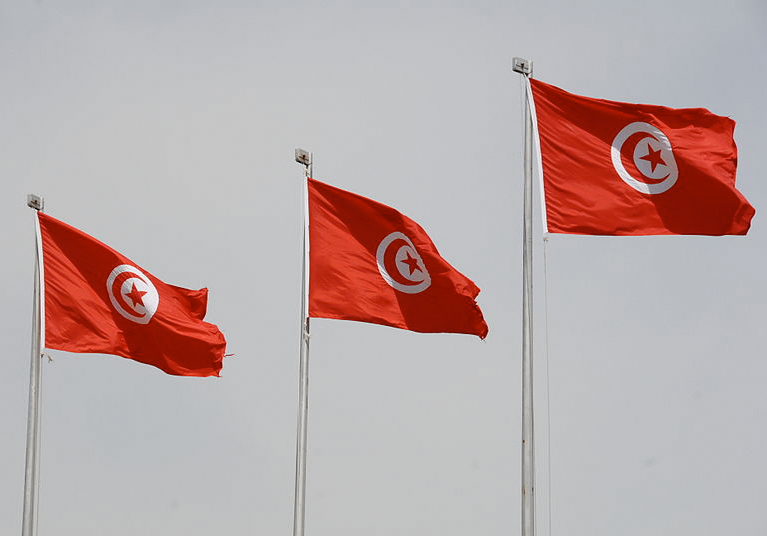The International Commission of Jurists (ICJ) condemns Tunisia’s forcible removals of at least 400 foreign nationals, mainly from sub-Saharan Africa, including asylum-seekers and refugees, in violation of the non-refoulement principle and the prohibition on collective expulsions last week.
In yet another wave of attacks against Black Africans, in the early hours of 3 May 2024, the Tunisian authorities arrested hundreds of sub-Saharan foreign nationals, including asylum-seekers and refugees, from makeshift settlements near the headquarters of the International Organization for Migration and the UN Refugee Agency (UNHCR) in Tunis, before forcibly expelling them to the Algerian border. Reports indicate that some of them may have been expelled to Libya, where migrants are generally exposed to a real risk of being held in detention centres in which they are subjected to ill-treatment. Among those expelled, were Sudanese and Ethiopian nationals, who face a real risk of serious harm upon return to their countries. According to reports, the Tunisian authorities left them in the desert without food, water or access to medical assistance.
“These forcible removals in inhumane conditions not only violate the non-refoulement principle and the prohibition on collective expulsions, but the manner in which they were carried out amounted to ill-treatment,” said Said Benarbia, ICJ Middle East and North Africa Programme Director. “The authorities must conduct individualized, fair and effective assessments to determine whether people are entitled to international protection, consistent with international refugee and human rights law binding on Tunisia.”
On 6 May, in a televised speech during a National Security Council meeting, Kaïs Saïed, Tunisia’s President, confirmed that 400 foreign nationals had been expelled to the “eastern border” in “continuous coordination” with neighbouring countries. In the same speech, the President railed against associations working to uphold the human rights of migrants and refugees branding them “traitors” and “mercenaries” receiving “huge sums of money from abroad” in order to “settle these Africans in Tunisia.” The President also criticized these associations’ efforts to temporarily house migrants and refugees in hotels.
Hours before the President’s speech, Saadia Mosbah, an outspoken defender of the human rights of sub-Saharan foreign nationals and the President of the Tunisian association Mnemty, which fights against racial discrimination, was arrested and questioned by law enforcement officers after her home and the association’s premises were searched. Ms. Mosbah is being held in police custody, purportedly based on suspicions of money laundering, pending further investigation under Law 2015-26 on “Combating Terrorism and Preventing Money Laundering”. Under that law, she could be held in police custody for an initial period of up to five days, in violation of international human rights law and standards guaranteeing the right to liberty. The General Coordinator of Mnemty, Zied Rouine, was also questioned, but was subsequently released.
The following day, on 7 May, the Public Prosecution of the Tunis First Instance Court opened investigations into numerous other associations working to uphold the human rights of migrants and refugees, once again, purportedly on suspicion of money laundering, as well as financial corruption. That same day, Sherifa Riahi, the former director of Terre d’asile Tunisie, a non-governmental organization (NGO) providing legal and social support to asylum seekers and refugees, was initially questioned and then held in police custody, also for up to five days on the basis of Law 2015-26.
The president and vice-president of the Tunisian Refugee Council (TRC), an NGO partnering with UNHCR and supporting the implementation of the UN Refugee Agency’s mandate for the protection of refugees and others entitled to international protection, have also been arrested and placed in pre-trial detention based on charges of “conspiracy to help people entering the Tunisian territory”, after TRC had published a tender call to hotels with a view to accommodating foreign nationals. According to information available to the ICJ, on the same day, law enforcement officials also conducted checks at the premises of several other NGOs working on, or perceived as working on, the human rights of migrants and refugees.
“The Tunisian authorities are clearly targeting these associations and individuals solely because of their legitimate work promoting and defending the human rights of refugees and migrants, in violation of the right to freedom of association,” added Benarbia. “Such intimidation must stop and the human rights of migrants and refugees must be respected.”
Background
Following a speech of President Kaïs Saïed during a National Council meeting on 21 February 2023, in which he said that the “influx” of irregular migrants from Sub-Saharan Africa was part of a criminal plan designed to “change the demographic make-up” and turn Tunisia into “just another African country that doesn’t belong to the Arabic and Islamic nations anymore”, there has been an upsurge of violent attacks against Black Africans, whether by internal security forces or by individuals acting with impunity. Since then, several incidents of collective expulsions targeting Black Africans have also taken place, including to Libya. Black Tunisians, making up some 10 to 15 percent of the country’s 12 million population, have also been subjected to attacks.
The European Union and Tunisia signed a Memorandum of Understanding on 16 July 2023 pledging financial support to Tunisia in order to prevent foreign nationals from reaching Europe and facilitate their return from Tunisia to their countries of origin, among other things, without any clear guarantees to ensure that the Tunisian authorities respect and protect the rights of migrants, asylum seekers and refugees.
Contact
Saïd Benarbia, Director, ICJ Middle East and North Africa Programme; t: +41 22 979 3800, e: said.benarbia(a)icj.org





